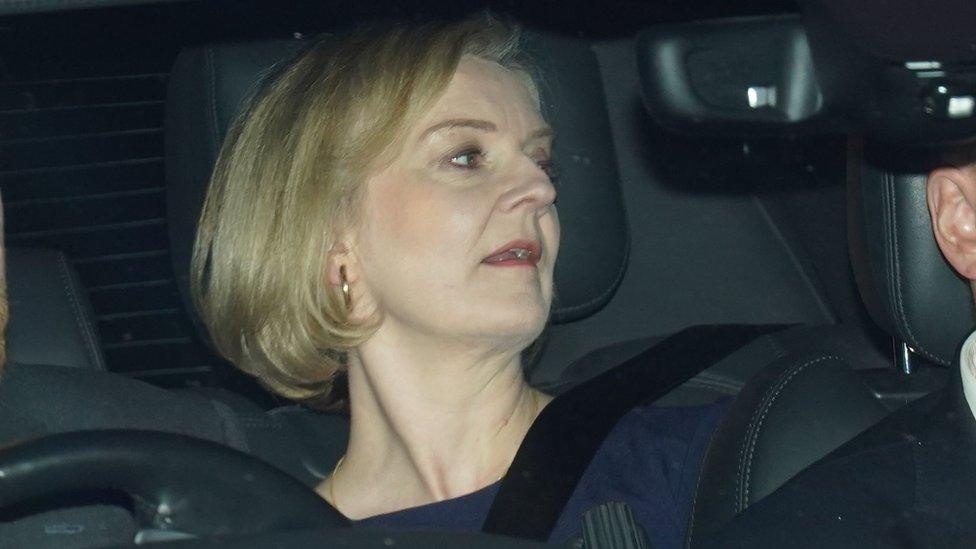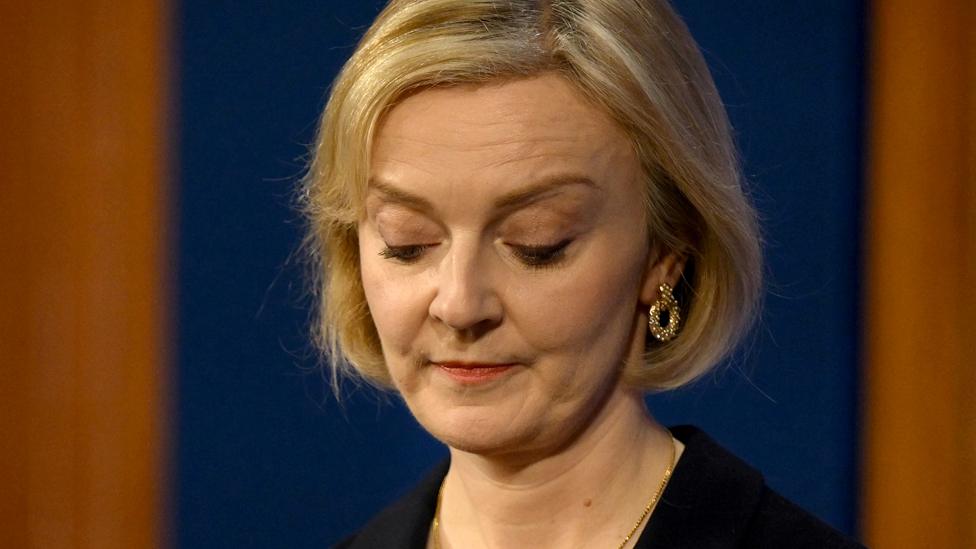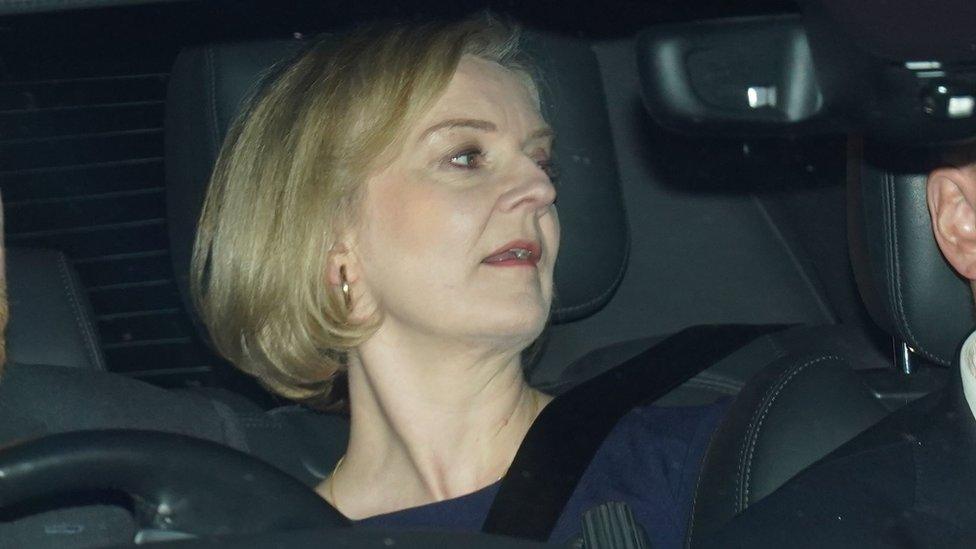Pensions: Minister can't give certainty over triple lock
- Published
- comments
Will the government stick to its pledge on pensions? Watch Foreign Secretary James Cleverly respond
Foreign Secretary James Cleverly has said he cannot give people "certainty" over how much their pensions will increase by next year.
State pensions were due to rise by about 10% in April 2023, which would take the weekly payment from £185.15 to just over £200.
But the funding formula that guaranteed that rise - known as the "triple lock" - could be ditched to make savings.
It comes as Liz Truss prepares to face MPs at Prime Minister's Questions.
It will be the first time the prime minister has faced questions from MPs since almost her entire economic programme was scrapped by new Chancellor Jeremy Hunt, on Monday.
She sat in silence on Tuesday as Mr Hunt set out his plans in the Commons, and ignored opposition calls to answer questions.
The PM's team think her engagement with MPs this week has been warm and improved her position, Ms Truss is still under immense pressure, with her authority undermined after she abandoned her flagship policies.
One ally of the PM said she was determined to get on the with the job, but at midday her fight for survival will play out in public, as she faces questions from Labour and her own backbenchers in Parliament.
A poor performance at PMQs could persuade more of Ms Truss's MPs that they need to get rid of her sooner rather than later.
Many of the government's tax and spending plans have been thrown in doubt, ahead of a statement on 31 October.
This includes the pensions "triple lock", which guarantees payments would rise by whatever is higher - prices, average wages or 2.5%.
Asked whether the government was still committed to the triple lock, Mr Cleverly told BBC Breakfast ministers took manifesto commitments "incredibly seriously".
"I know your viewers would want me to give certainty here and now. I'm not in a position to do that because the announcements are going to be made in the very, very near future by the chancellor," he said.
"We've got to do the right thing to make sure we manage the economy well. We've got to make sure that our cost of borrowing doesn't go up because that then has an impact on inflation and those bills as well."
New Chancellor Jeremy Hunt is due to give a statement on the government's plans for tax and spending on 31 October.
All government departments have been told to find savings, and Mr Hunt has not ruled out further tax hikes and spending cuts to reassure financial markets and keep UK debt under control.
Inflation - the rate at which prices rise - is running at a 40-year high of 10.1%, meaning wages, pensions and benefits are not keeping up with the cost of living.
A decision on how much to increase pensions by next April has not been made yet and would normally be expected this autumn.
The triple lock has been in place ever since it was introduced under the Conservative-Liberal Democrat coalition, apart from a one-year suspension during the pandemic.
The Resolution Foundation think tank has estimated, external raising pensions by earnings instead of inflation would save the government £6bn next year.
The government has also refused to commit to increasing benefits in line with inflation, a pledge made by Ms Truss's predecessor Boris Johnson. The issue dominated the Tory party conference in Birmingham - and breaking previous commitments on pensions and benefits is likely to face opposition from many Tory MPs.
Previously supportive newspapers, the Daily Mail and the Daily Express, also attacked the prime minister over the failure to commit to the triple lock on their front pages on Wednesday.
Labour has said it is committed to keeping the pensions triple lock.

The prime minister was pictured leaving Downing Street on Tuesday night to meet Eurosceptic MPs
Five Conservative MPs have publicly called for the PM to resign, while many more have privately said she will have to go.
Tactics reportedly under consideration to oust her include submitting no-confidence letters in an attempt to force her into resigning.
There has also been speculation some MPs could push party bosses into changing the rules to allow an early leadership challenge.
However, there is little agreement on should take over from Ms Truss if she is removed.
Tory Party members also appear to be turning against Ms Truss, despite most backing her to become PM.
A YouGov poll of 530 members found 55% now thought she should resign.
Related topics
- Published19 October 2022

- Published19 October 2022

- Published19 October 2022
